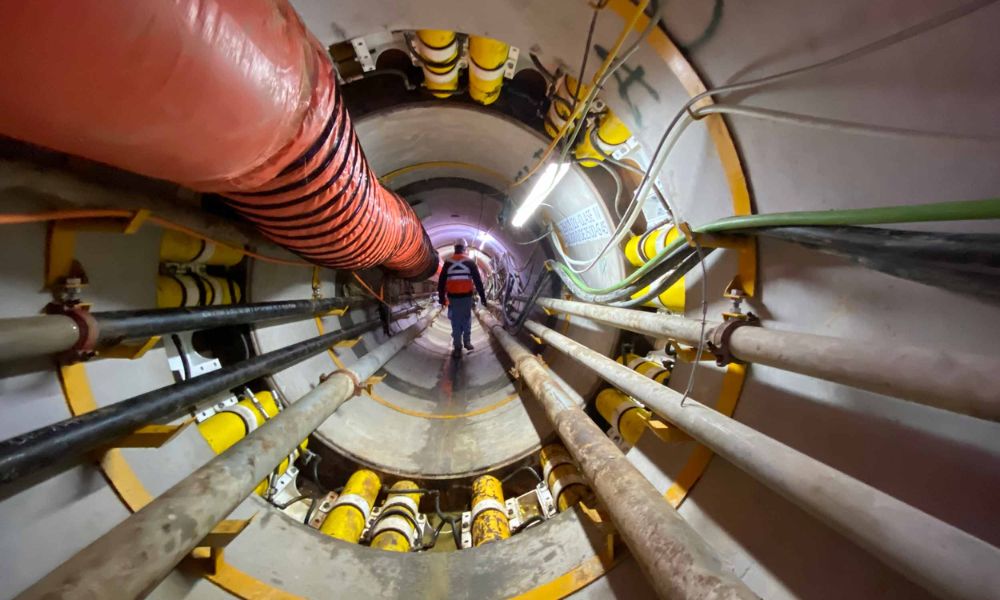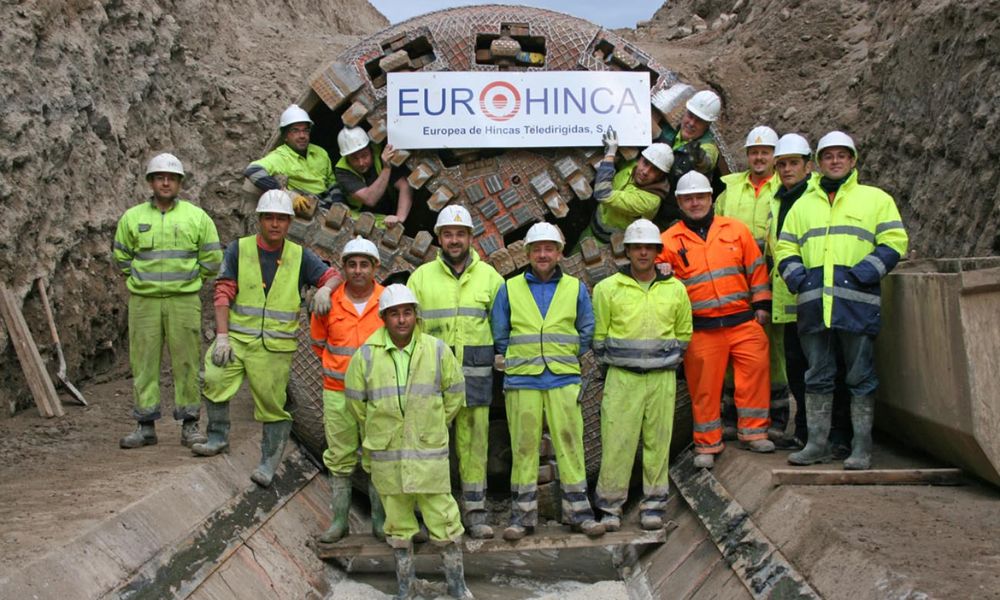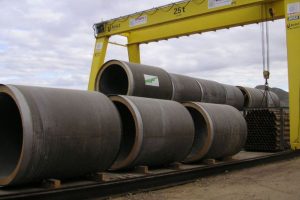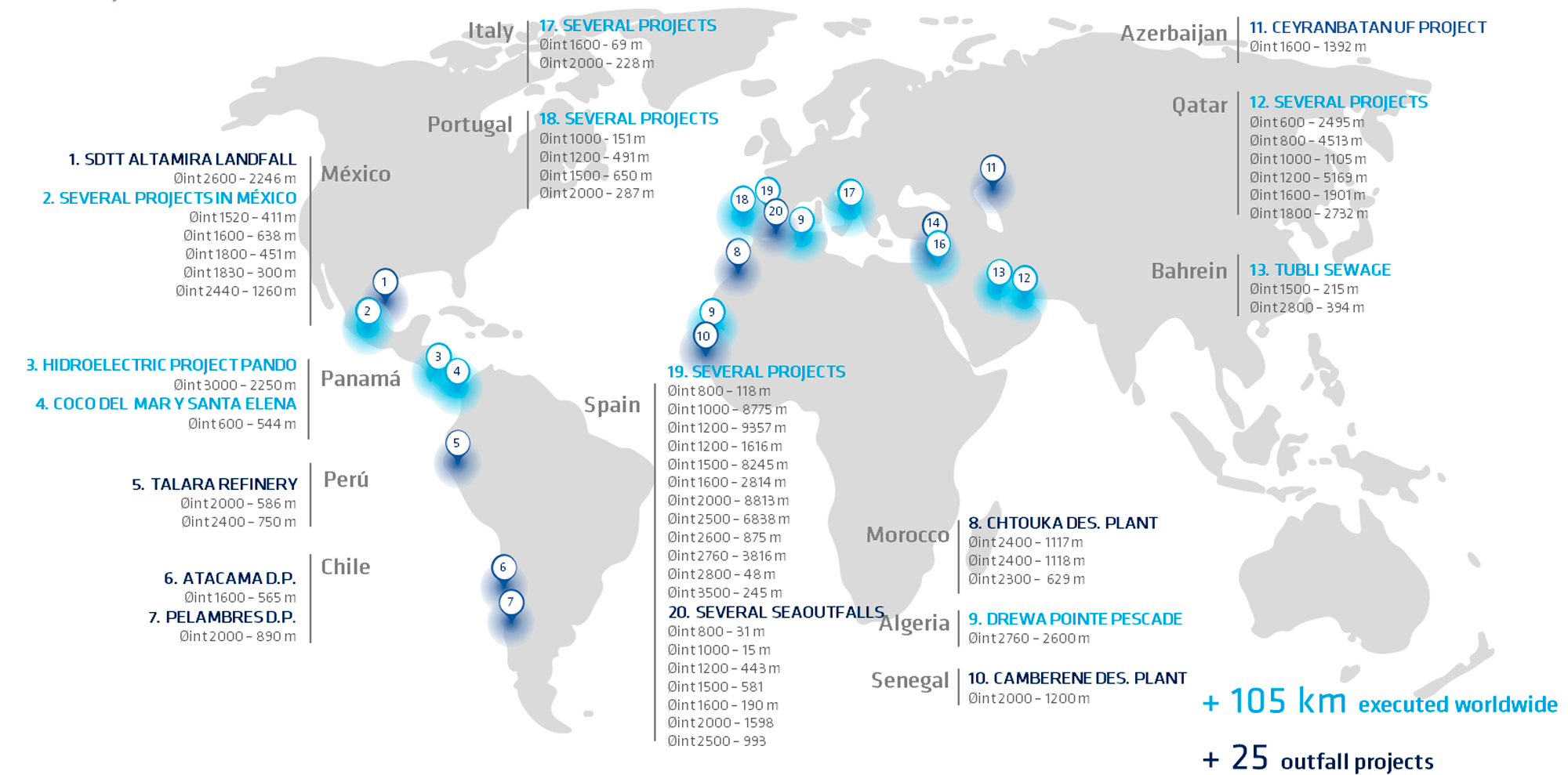Direct Pipe

Direct Pipe: The fast and efficient solution for pipe installation
The method Direct Pipe The best features of the most popular microtunneling machines and horizontal directional drilling (HDD)The new pipeline installation approach, offering an advanced solution for pipeline installation. Through this approach, excavation and pipe installation are performed simultaneously, eliminating the need for additional tunnel enlargement and construction of a reaction-wall shaft. This technique not only speeds up the process, but also ensures greater efficiency and versatility.The system can be adapted to any type of floor. Thanks to its ability to integrate these functions in a single step, Direct Pipe has become a preferred option in complex infrastructure projects, where speed and accuracy are critical.
Space requirements for the use of Direct Pipe
Although the method Direct Pipe offers numerous advantages, one of the critical aspects to take into account is the need for a considerable ramp surface for its implementation. This is because the process requires a long and stable working platform where the metallic pipe can be welded prior to subway installation. This spatial requirement can present challenges in space-constrained environments, especially in densely populated urban areas. However, in projects where sufficient surface area is available, Direct Pipe remains a highly effective optioncombining precision and efficiency with an ability to adapt to diverse terrain conditions.

What they think of us
Request for information
Thank you for considering our company for your business proposals!
News that may interest you

What techniques are used in tunnel construction?
Tunnel construction is a complex task that requires the application of various advanced techniques to ensure stability.
Frequently asked questions about direct pipe
What is the Direct Pipe method and how does it differ from other pipe installation techniques?
The method Direct Pipe is an innovative technique that combines the advantages of microtunneling and horizontal directional drilling (HDD). Unlike other methods, Direct Pipe allows excavation and pipe installation to be performed simultaneously, eliminating the need for additional tunnel extensions and a reaction wall attack shaft. This makes it faster, more versatile and efficient, adapting to a wide range of ground conditions.
On what kind of soils can Direct Pipe be used?
Direct Pipe is applicable to almost any ground condition, from soft to rocky soils. Its versatility allows this method to be used in a variety of projects, including crossings under rivers, highways, and in densely populated urban areas. The method's ability to adapt to different soil types without losing efficiency is one of its main advantages.
What advantages does Direct Pipe offer compared to other pipe installation methods?
Direct Pipe offers several key advantages over other methods. By performing excavation and pipe installation simultaneously, project time is significantly reduced. In addition, it does not require tunnel enlargement or a reaction wall attack shaft, which simplifies logistics and reduces costs. It is also less invasive, minimizing environmental impact and disturbance in sensitive or urban areas.
What are the space requirements for implementing Direct Pipe?
One of the main requirements for implementing the Direct Pipe method is the need for a substantial ramp surface. This is because the process requires a long and stable working platform where the metallic pipe can be welded prior to installation. This spatial requirement can be a challenge in environments with limited space, such as urban areas, but is still feasible in projects with sufficient space available.
What types of pipes can be installed with the Direct Pipe method?
Direct Pipe is particularly suitable for the installation of large diameter pipes, usually metallic, which require a high degree of precision and control during installation. This method is ideal for pipelines used in the infrastructure for transporting water, gas, oil and other fluids through difficult terrain or environmentally sensitive areas.
What environmental considerations should be taken into account when using Direct Pipe?
The Direct Pipe method is less invasive than other traditional pipe installation methods, making it more environmentally friendly. By minimizing the need for open-cut excavation, the impact on the surface and surrounding vegetation is significantly reduced. In addition, its ability to work in difficult soils without significantly altering the environment makes it an ideal choice for projects in ecologically sensitive areas.




